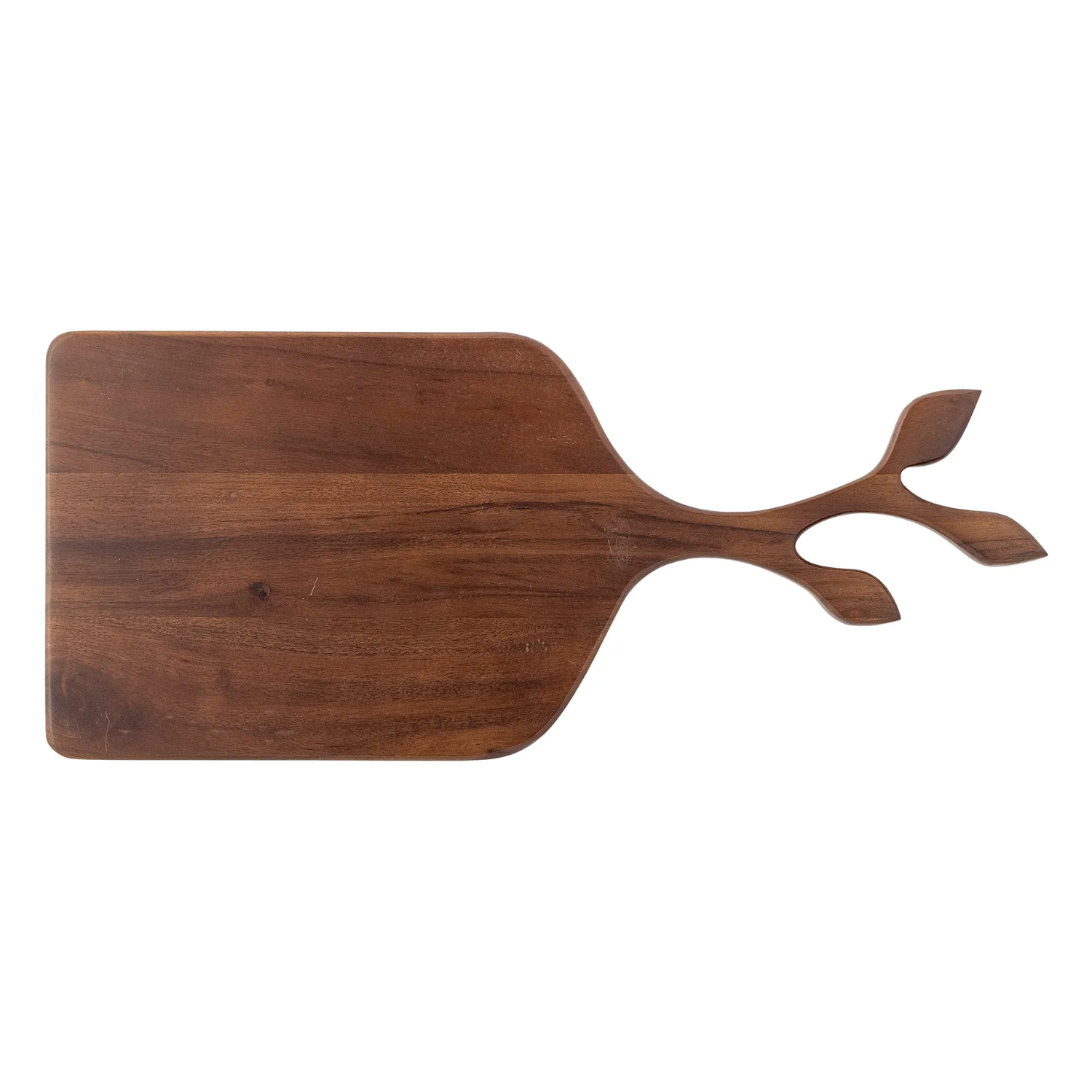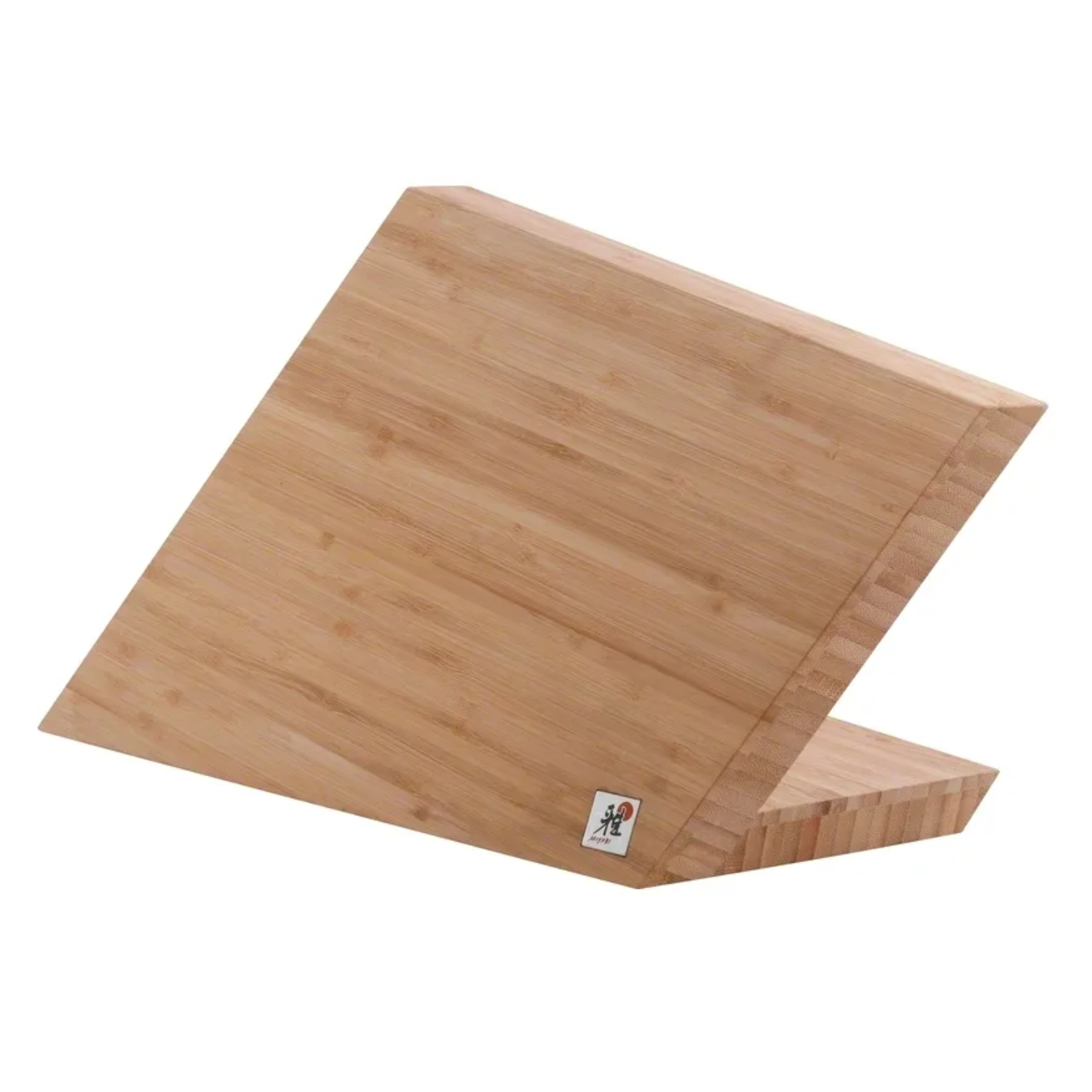5 Crimes Against Kitchen Knives That Any True Cook Would Never Do — And How to Keep Yours Sharp and Shiny
You deserve more than blunt, chipped knives, so here's how to make these kitchen essentials work to the end of their shelf life


The Livingetc newsletters are your inside source for what’s shaping interiors now - and what’s next. Discover trend forecasts, smart style ideas, and curated shopping inspiration that brings design to life. Subscribe today and stay ahead of the curve.
You are now subscribed
Your newsletter sign-up was successful
Have you ever begun to slice a freshly washed soft tomato, and your knife requires an extra push to reveal a crisp, thin slice? Well, I have and soon discovered that it was because my knife care was subpar at best.
But with the weighty (and justified) price tag that comes with a good knife, I made it my goal to learn how to properly care for these kitchen tools so they can last forever — as they're often meant to. And that includes everything from learning how to store kitchen knives to the best way to wash them and more.
If you, too, are trying to level up your culinary skills and with it your use of cooking tools, you've come to the right place. I asked the experts for their best knife care tips, and, perhaps more importantly, what they'd never do.
1. Never Sharpening Your Knives
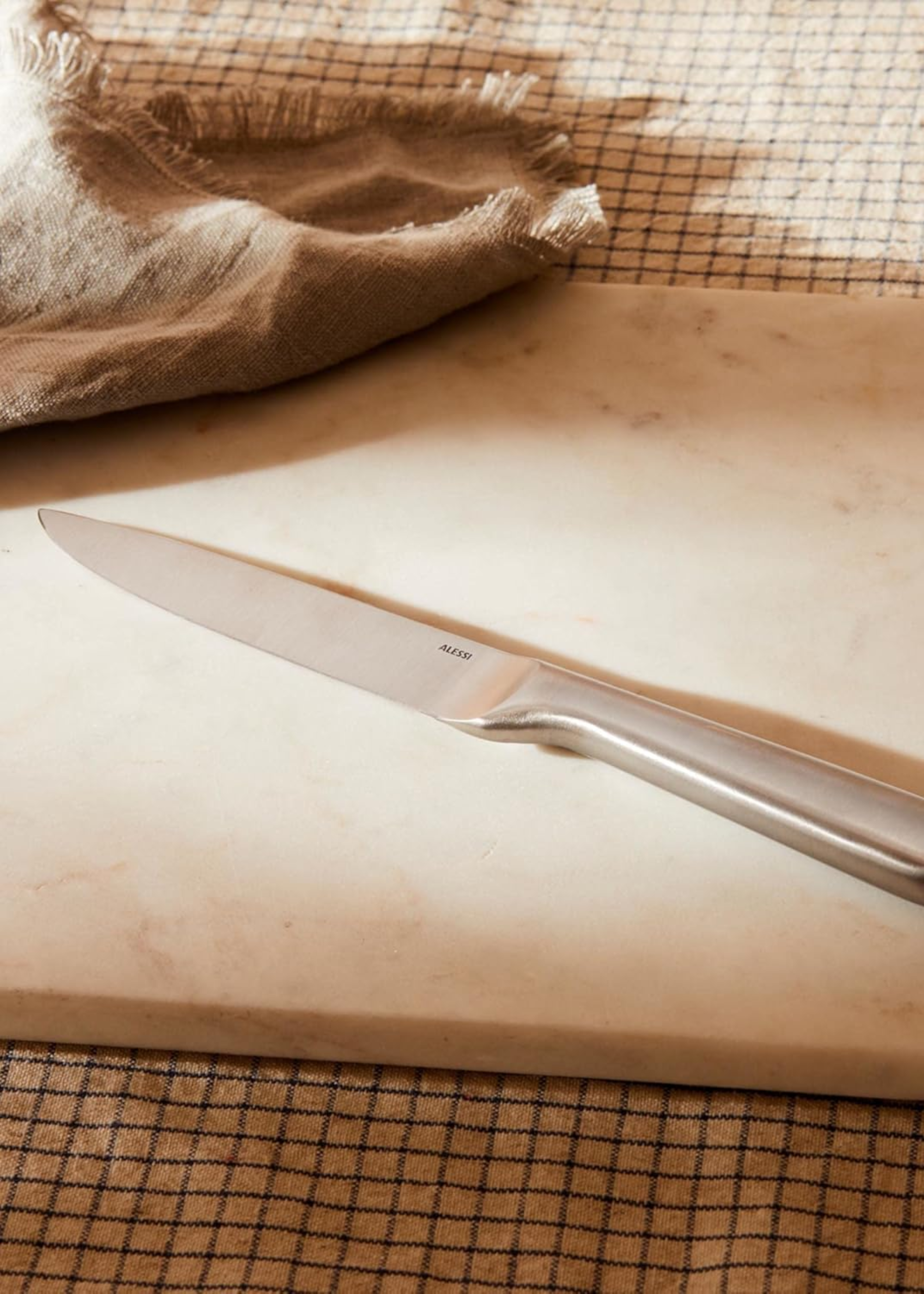
There's nothing like a dull knife to ruin a good dice.
Steven Carter-Bailey, food expert at ProCook, tells me that if you look after your kitchen knives well, they can last a lifetime. "Regular sharpening can improve the longevity of your knives while making them more effective. A blunt knife is not only dangerous but can make cutting much more difficult," he says.
"Certain materials may require different care and attention, such as how frequently you should sharpen them and which sharpening tool is best. For example, stainless steel knives come in varying (HRC) hardness ratings, so make sure you take note. The higher the rating, the more likely your knife will retain its edge and require less frequent sharpening."
He recommends whetstones as one of the best ways to sharpen your knives and hone their edges. "However, due to their simple mechanics, pull-through and electric knife sharpeners can also be a fast and simple way to keep your knives at the pinnacle of performance if used properly," he adds.
Alternatively, you can also look to Bobby Berk's favorite Tumbler Knife Sharpener. Or, this Lantana Smart Knife Sharpener, which comes highly rated on Amazon, to aid your knife care.
The Livingetc newsletters are your inside source for what’s shaping interiors now - and what’s next. Discover trend forecasts, smart style ideas, and curated shopping inspiration that brings design to life. Subscribe today and stay ahead of the curve.
Steven Carter-Bailey is a food expert at ProCook. After years of working in corporate marketing, Steven finally plucked up the courage to enter Channel 4’s eighth series of The Great British Bake Off. With a dream to just make it through the first week he finished as runner-up in the final, collecting three Star Bakers (and several Hollywood Handshakes) along the way. He has a steady stream of corporate clients including John Paul Mitchell Systems, Rubik’s, BBC, Disney and Magimix as well as celebrity cakes for Sir Ian McKellen, Jonathan Van Ness, Jade Thirlwall and Nicola Coughlan.
2. Dishwashing
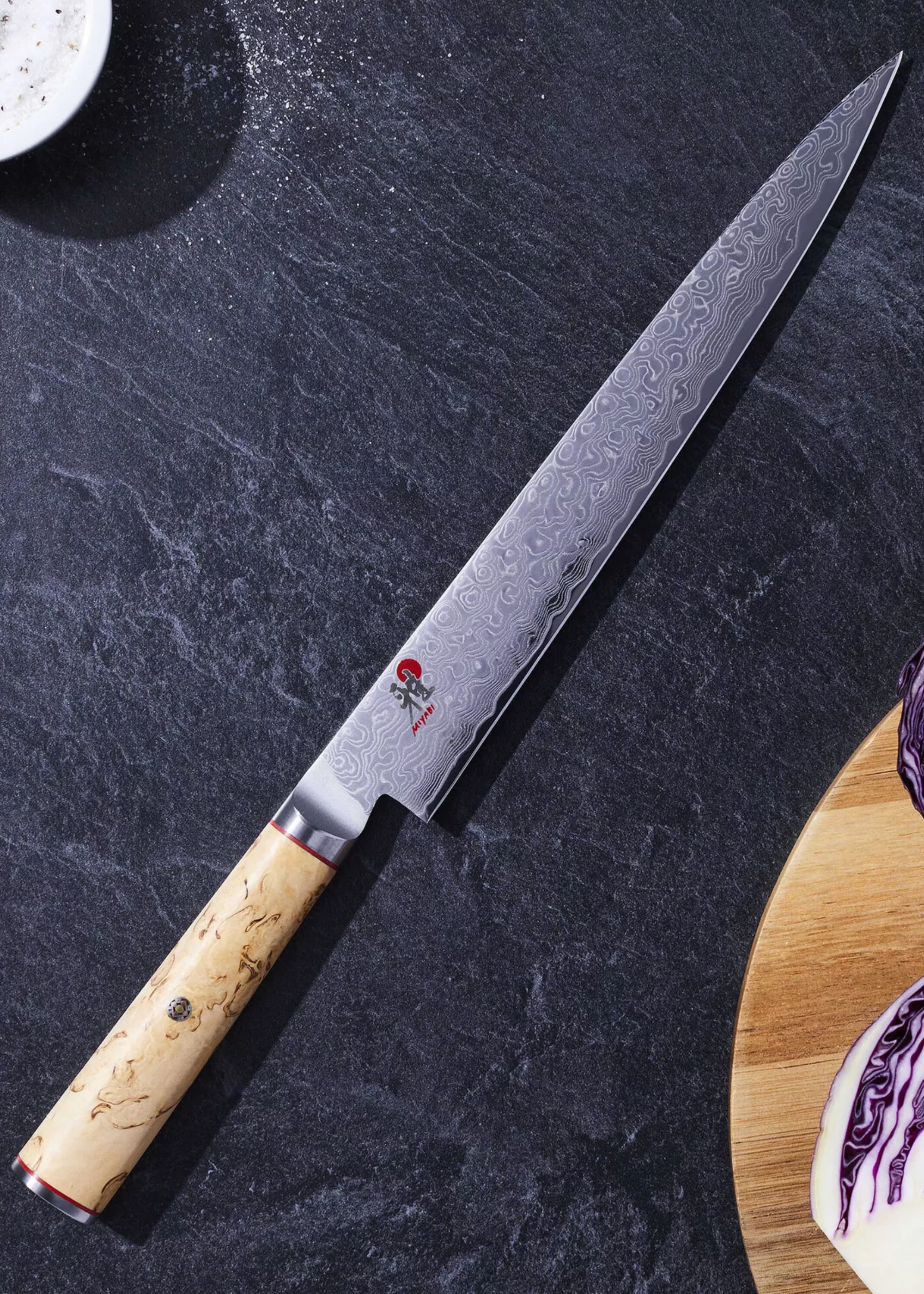
Care for your knives and their fine form by handwashing gently.
Chef's knives will always make the top of the list of kitchen utensils worth keeping. And that's exactly why it's important to know how to properly wash them.
"I always say it's better to wash your knives by hand because the chemicals from the dishwasher detergent will dry the handle material," says Quintin Middleton, founder of Middleton Made Knives. "And the heating element is also likely to soften the steel over time."
When it comes to cleaning your knives the right way, Steven also agrees that hand washing is the only way to ensure your knife will remain in pristine condition for as long as possible.
"Be sure to wipe your knife dry too, preventing any water marks and rusting. Depending on the type of detergent used, the washing process can lead to rust or corrosion on the knife’s blade," he says. "The hot water will damage wooden handles, and the blades can even damage other items in the dishwasher."
Quintin Middleton is the jovial artisan behind the beautiful, bespoke, hand-made chefs knives at Middleton Made Knives in the small rural South Carolina town of Saint Stephen, just 49 miles north of historic Charleston. Since 2010, Middleton has earned a reputation as the South's premier culinary bladesmith, hand-making high carbon steel knives for many of the nation's top chefs including Sean Brock, Michael Anthony, Mike Lata and others.
3. Storing Them in a Drawer
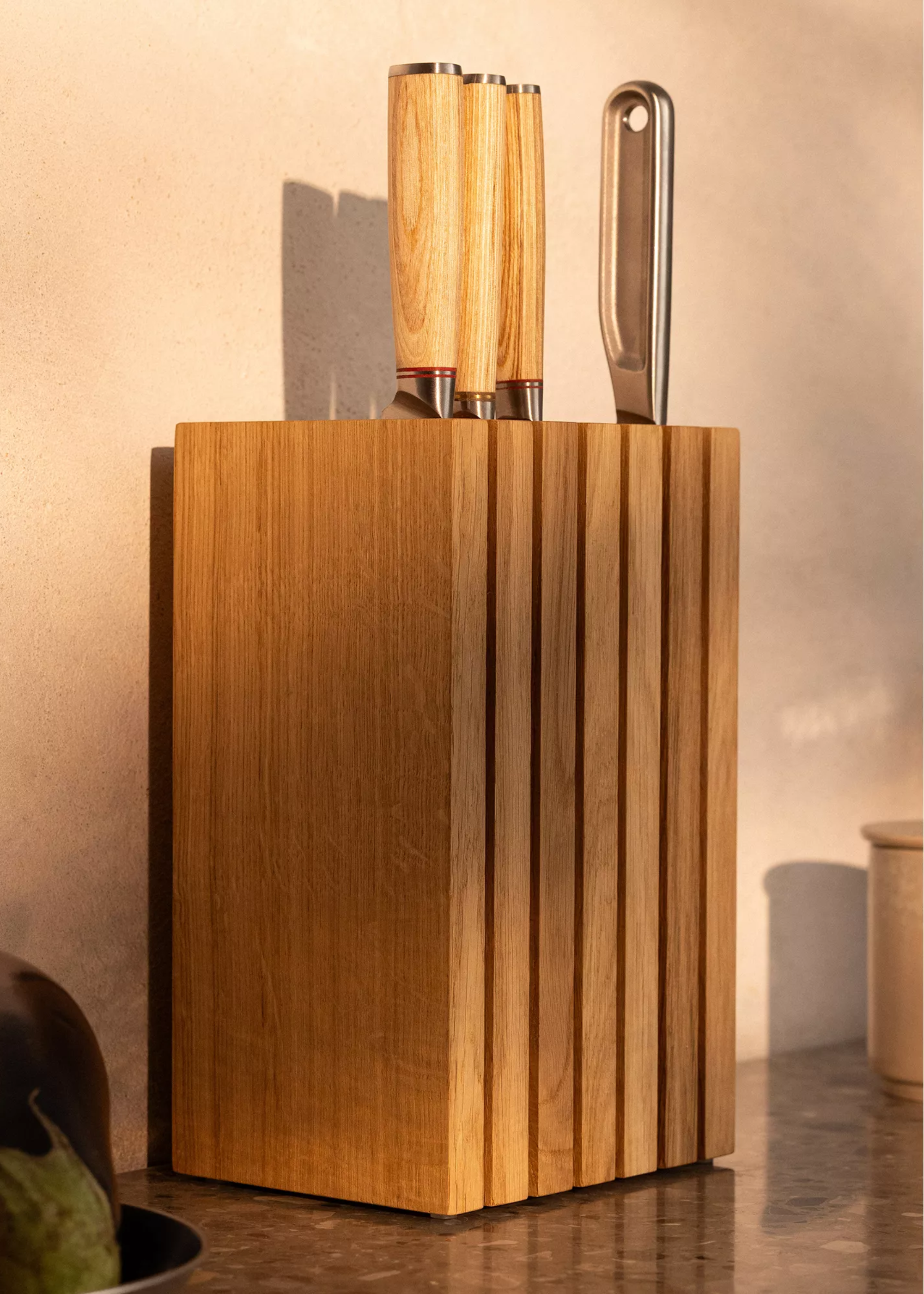
A sleek block or a magnetic rail might be best.
Once you're done sharpening and cleaning your knife, you'll need to know how to store it like chefs do. This is a key step in preventing your knives from aging poorly and even causing harm.
"The best place to store knives would be on a magnetic block or other knife stand," says Quintin. "If you store your knives in a drawer, they are likely to dull, and you risk cutting yourself when grabbing them."
If you have little to no counter space to spare, then a tiered cutlery organizer is your best bet. However, it's best to prioritize standing storage for your knives where possible. And, this WOODSEA Block Wooden Knife Holder from Selfridges is my top pick.
4. Ignoring the Handle
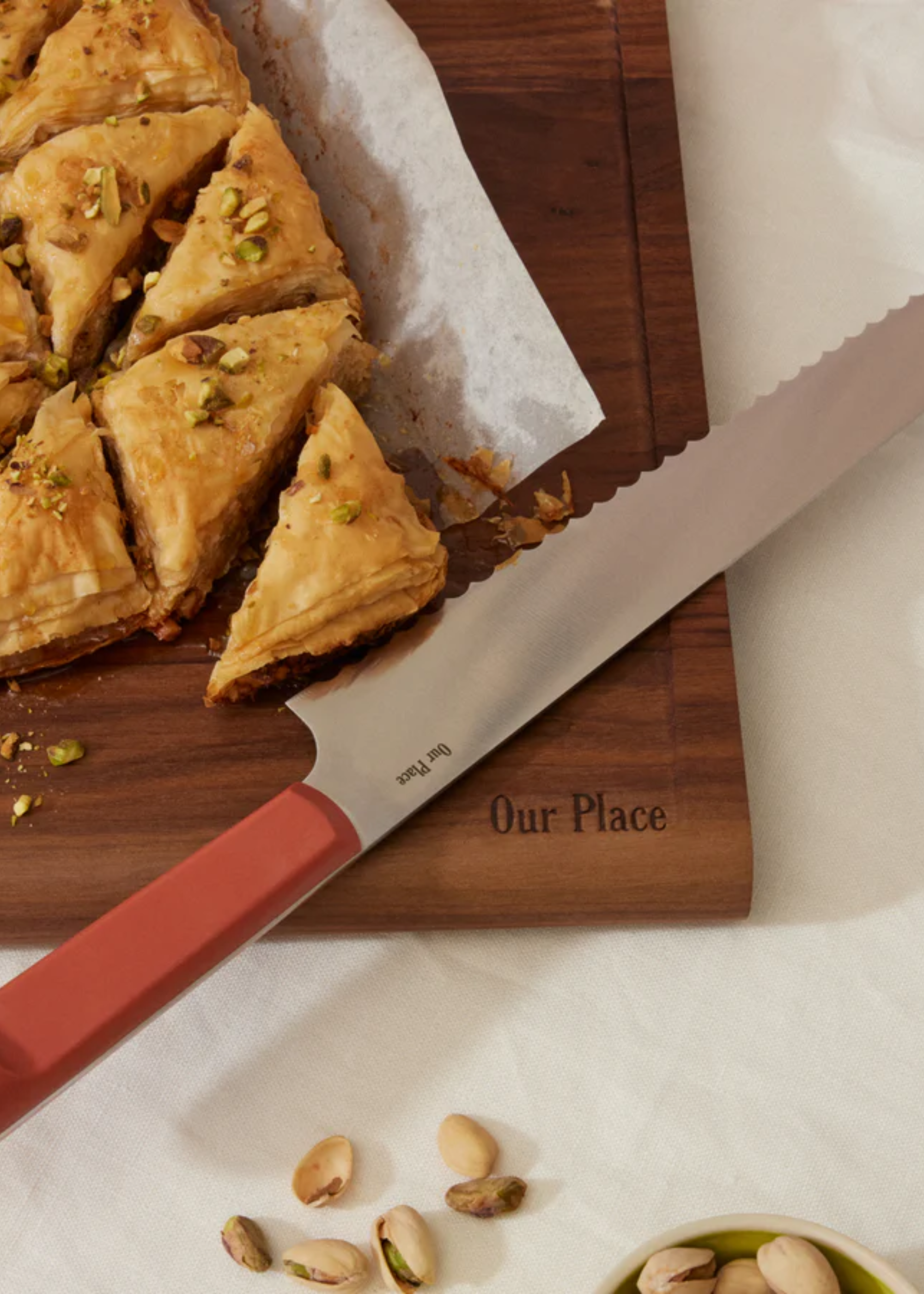
Pay attention to the handles, just as you would the blade.
Most often, when caring for kitchen knives, it's the sharp and shiny blades that we tend to think of. But the handles deserve just as much love. After all, it is the part of the knife that you wield almost every day.
"For a knife with a wooden handle, you can add wax or butcher block oil to maintain the handle," says Quintin. "For rust spots, I recommend Bar Keepers Friend Cleanser to polish the spots off."
This Bees Wax Polish from Amazon will work wonders on your knife handles and can also be used to quickly shine any other wood finishes around your modern kitchen.
5. Using Glass or Steel Cutting Boards
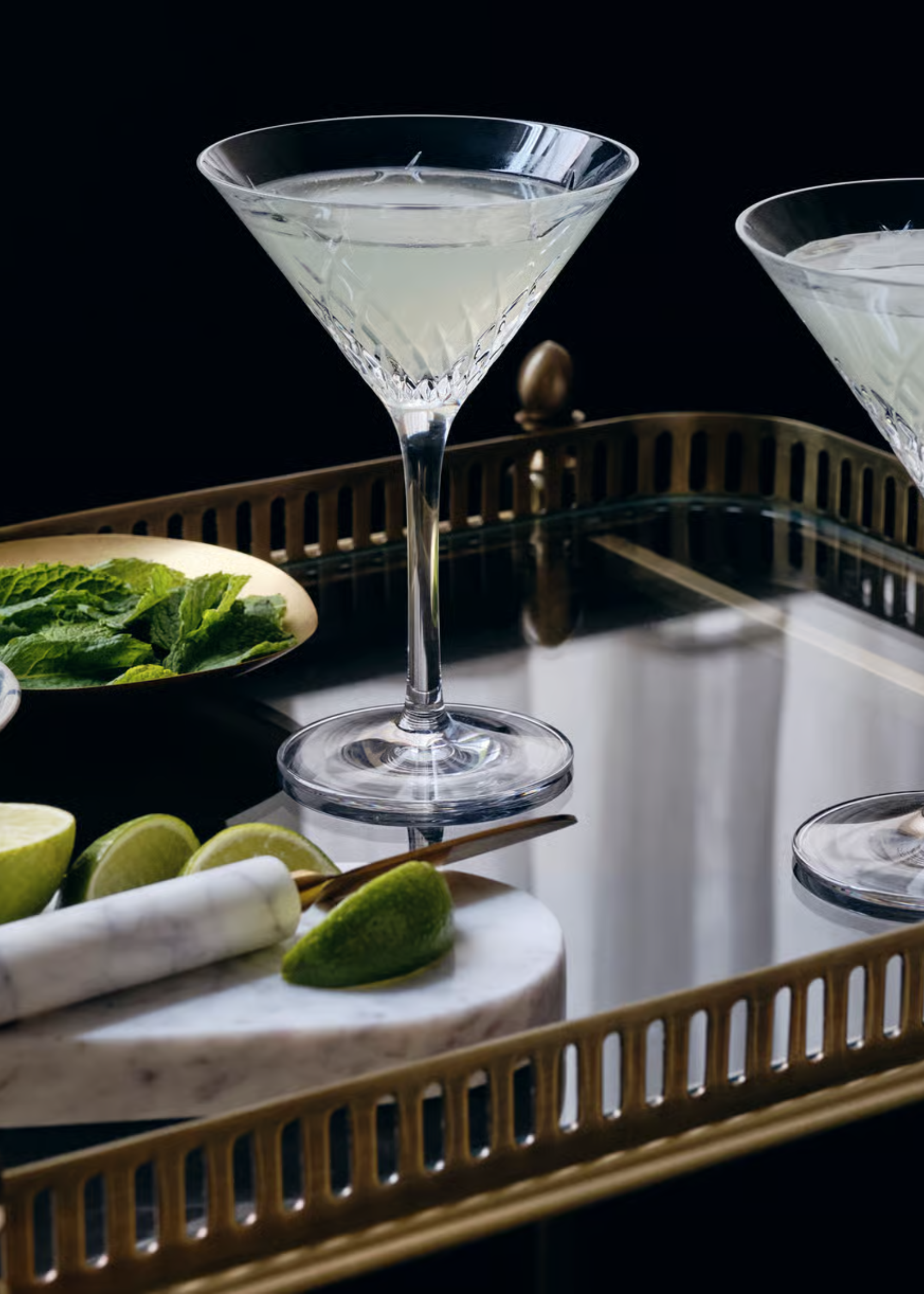
Form aside, keep material at the top of your mind when shopping for cutting boards.
Whether you're chopping, dicing, or slicing, the material your knife comes in contact with at the end of each motion is worth looking into. Hence why butcher block countertops are a common style in many recipe-loving homes.
"The best cutting boards are either wood, plastic, or composite," says Quintin. "The knife needs to be able to cut into the material. The knife should not be hitting something as hard as the steel."
He advises against investing in cutting boards crafted from glass, stainless steel, or granite for the sole reason that they could damage your knives and have you repurchasing these essentials far sooner than you should have to.
Kitchen Knife Essentials
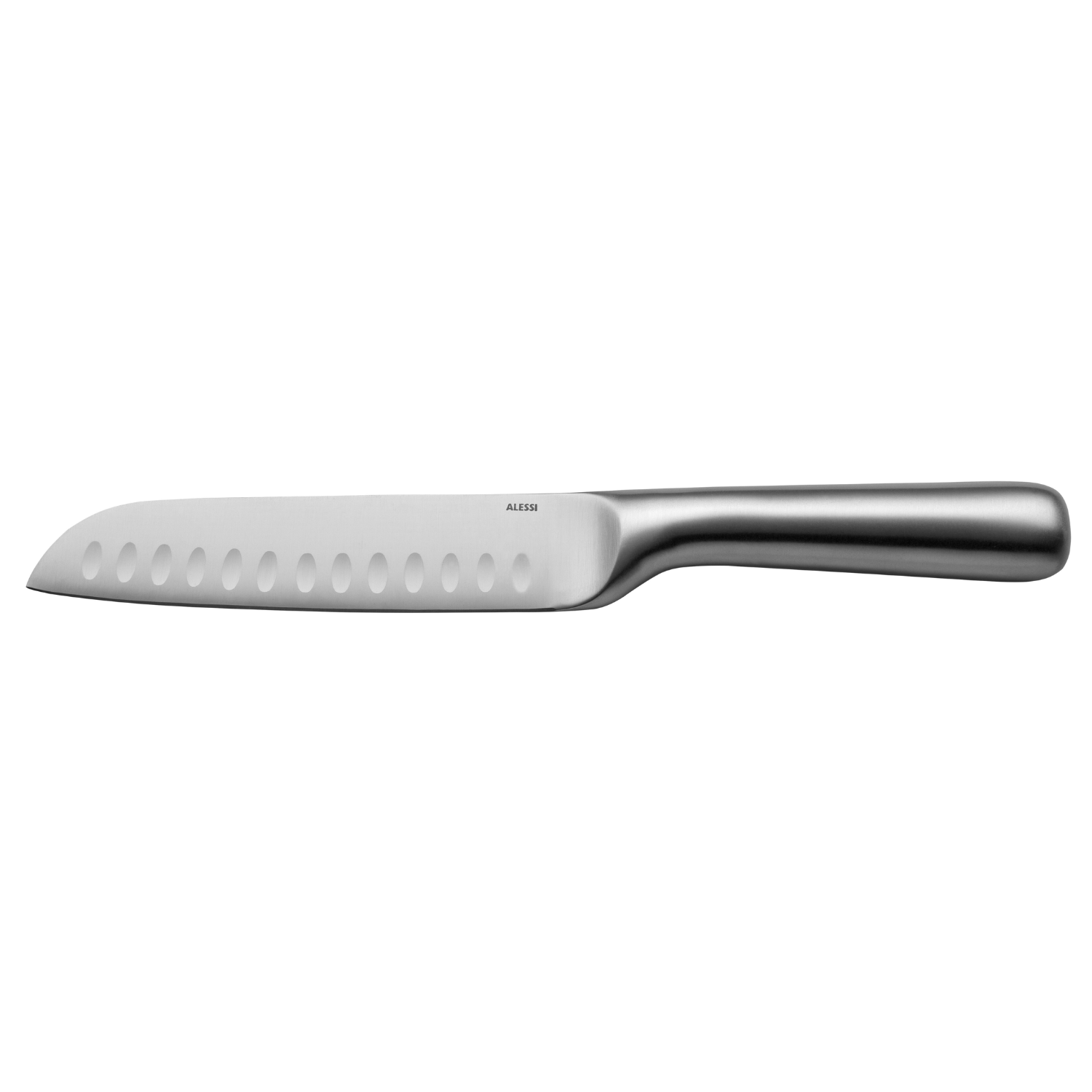
Material: Alloy Steel
Alessi is known for more than just being one of the best cookware brands around, and this Mami Large Santoku Knife is one of the other reasons why.
FAQs
Should You Sharpen Kitchen Knives After Every Use?
No, sharpening your kitchen knives after every single use is not advisable. Instead, it's better to give your knife a good sharpening only when it's noticeably dull. And the same goes for honing, too. It's only recommended that you hone your knife when your blade seems to be off-center.
While we're on the topic, there is one particular knife that's been the topic of excited conversation on the Livingetc team, and that's the Landline Paris Tomato Knife. A little indulgent but so beautiful, it's worth checking out. Especially now that you're fully versed in knife care 101.

Amiya is a Home Wellness Writer at Livingetc. She recently graduated with a Masters Degree in Magazine Journalism from City, University of London, and has lent her words to beauty, fashion, and health sections of lifestyle publications including Harper’s Bazaar and Women’s Health. Her experience as a research analyst has equipped her with an eye for emerging trends. When she’s off the clock, she can be found reading, listening to music, or overanalyzing her latest Co-Star update.
